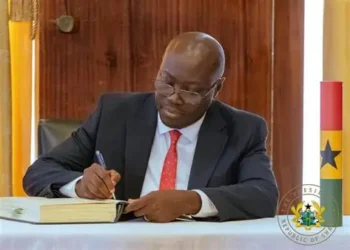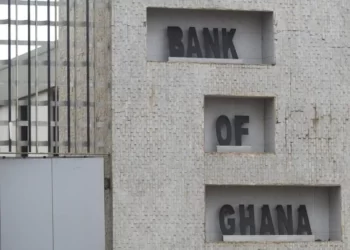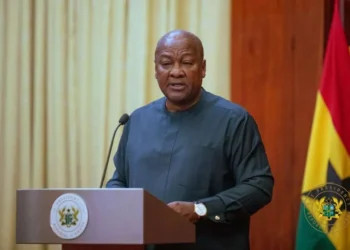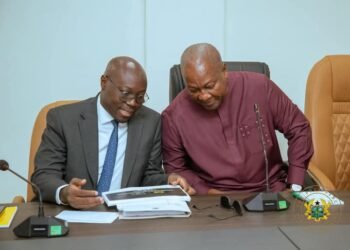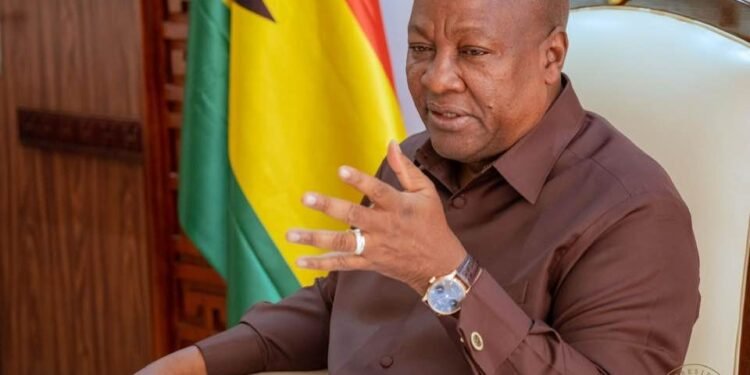Ghana’s economy has been characterized by corruption, which hinders the efforts and initiatives of successive governments, overshadowing policy implementations and consequently stalling the country’s growth.
The International Monetary Fund (IMF), in its latest Governance Diagnostic Report released this year, was a response to the government’s request for a governance review in October 2023. Though the report was completed in the period of the new government in 2025, much of its work reflects the previous administration.
However, the report incorporated current events in 2025 but disclaims that its main findings are set between 2023 and 2024. Nevertheless, corruption is a factor that affects the Ghanaian governance and economy, hence necessary for all to take a cue from.
“This report reflects information gathered before and during the mission in October 2023 and in post-mission exchanges with the authorities in 2024. At the time of the finalization of the report, a new government had taken office in Ghana following the elections in December 2024.
“To maintain the integrity of the report, its content does not reflect any changes introduced by the new authorities (unless stated specifically).”
IMF’s Governance Diagnostic Report
According to the IMF, the report aims to “support Ghana’s efforts to strengthen governance, reduce corruption, and promote macroeconomic stability and inclusive growth.” The report seeks to identify governance issues and forward recommendations to foster inclusive growth and build a sustainable and resilient economy.
The report also aims to complement the IMF’s financial assistance program under the Extended Credit Facility Arrangement in its final stages to reveal corruption issues for addressing and assistance. The report also impact on the wider “economic governance reform agenda championed by Ghana with the support of international development partners.”
These, according to the IMF, are all guided by the 2018 Framework for Enhanced Fund Engagement on Governance.
The Corruption Barrier
Ghana is widely recognized for its political stability within the sub-region of the continent, a significant and enviable situation, as some of its immediate and not-so-immediate neighbors are plagued by political instability.

However, the report found that the challenge in Ghana is the advancement of corruption. This has eaten into the effectiveness of governance and rendered it weak.
Though the country is championing the course of democracy through successful and peaceful elections every four years, governance by governments is plagued with corruption, according to the report.
Over the years, Ghanaians have kept losing trust in governance issues and possible growth and its sustenance. Corruption is a governance hazard and must be curtailed, the report declared.
“Corruption remains a major barrier to effective economic governance, public trust, and sustainable growth in Ghana.”
IMF’s Governance Diagnostic Report
Major Sources of Corruption
The report revealed certain key areas that breed and pave the way for corruption and corrupt activities. the IMF noted that the structure of the governance and economic framework is not robust enough to deter corruption perpetrators.
Ghana’s procurement processes risk corruption. The whole process from contracts issuing, “excessive reliance on sole-source, and restricted tendering without adequate justification or oversight,” results in recurring “inefficiencies, inflated costs, and frequent contract non-performance.”
According to the IMF, another major source of corruption is overspending beyond budgetary allocations. The accrual of “large expenditure arrears, driven by weak budget credibility and poor commitment controls,” intensifies the liability of governance by “creating discretionary opportunities for corrupt practices in payment prioritization.”

The IMF noticed that the institutions that are supposed to fight corruption are ill-equipped and unable to enforce the law. According to the report, “anti-corruption institutions [are] fragmented and under-resourced,” and the deterrent instruments like “asset declarations, conflict-of-interest rules, and beneficial ownership registries” are not well enforced.
The process of and institution for revenue collection require reforms and upgrades as they are “weakened by outdated legal provisions, political influence, outdated systems, and limited digitalization,” causing the Ghana Revenue Authority (GRA) to be unproductive.
The courts are also not positioned well to deal with corruption cases, the report claimed. Though “constitutionally independent, [the Judiciary] faces delays and resource constraints,” in corruption cases.
The report recognized the progress made in the financial sector framework and instruments. However, “supervisory capacity and governance challenges in banks persist.” The report added that “inefficiencies and overlapping mandates create space for corruption, underscoring the need for comprehensive and well-sequenced reforms.”
Addressing the Governance Weakness: Corruption
The IMF insinuated that addressing corruption must not be treated with kid gloves. It requires “well-sequenced, comprehensive reforms to strengthen institutional independence, transparency, and operational capacity.”
“It stresses the importance of reinforcing preventive and enforcement mechanisms, enhancing the financial and operational autonomy of anti-corruption agencies, bolstering fiscal credibility and accountability (including by prioritizing budget credibility, implementing the arrears clearance strategy, entrenching competitive procurement practices), and generally minimizing discretionary powers in public sector operations.”
IMF’s Governance Diagnostic Report
The report suggests sustained progress in all the areas identified while tailoring remedies and reforms to the nature, strictness, and risks of corruption. The new government, upon engagement, responded to have identified measures and will implement an inclusive report.
“Informed by political-economy analysis, a limited set of priority measures has been identified, designed to establish a solid foundation for the successful implementation of broader and more comprehensive reforms.”
IMF’s Governance Diagnostic Report

According to the IMF report, “the [new] government has committed to strengthening governance and reducing corruption, providing a critical opportunity to address these long-standing vulnerabilities.”
A long-term leverage on governance and corruption needs intentionality and sustenance to foster transparency, accountability, inclusive growth, and strengthen governance.
READ ALSO: Ghana’s Banking Future Gets a Shake-Up As CIB to Restrict Top Roles to Chartered Professionals




